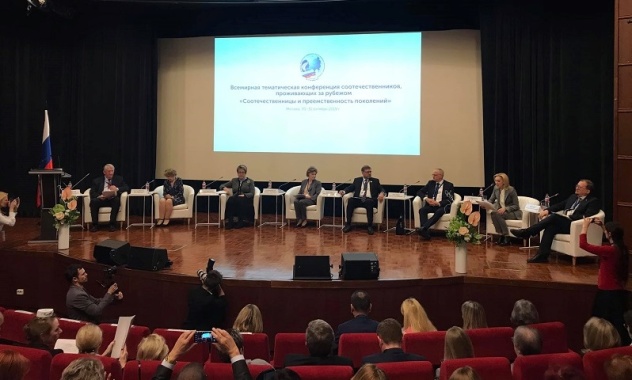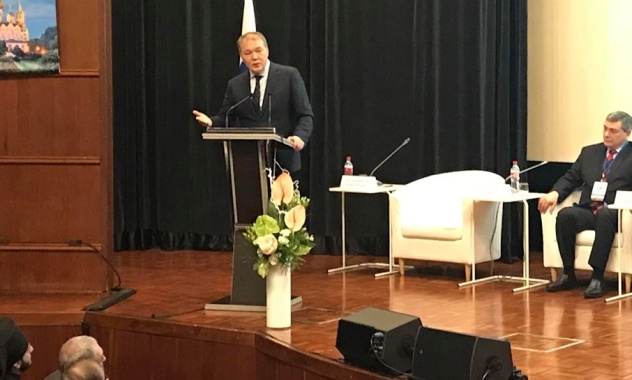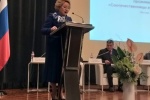Representatives of Russian Orthodox Church take part in World Conference on Fellow Countrywomen and Continuity of Generations
On 30th October 2019, the World Conference on Fellow Countrywomen and Continuity of Generations began its work in Moscow.
The plenary session was opened by Ms. Valentina Matviyenko, Speaker of the Federation Council of the Federal Assembly of the Russian Federation. Mr. Andrei Rudenko, Deputy Minister of Foreign Affairs of the Russian Federation, read out a message of greetings from Foreign Minister Sergey Lavrov.
Among the speakers were Ms. Olga Vasilyeva, Minister of Education of the Russian Federation; Ms. Tatyana Moskalkova, Russia’s Commissioner for Human Rights; Mr. Leonid Kalashnikov, head of the State Duma Committee for CIS Affairs, Eurasian Integration and Relations with Compatriots; and Ms. Larisa Yurchenko, chairwoman of the All-German Coordinating Council of Russian Compatriots.
The Russian Orthodox Church was represented by Metropolitan Antony of Korsun and Western Europe, head of the Moscow Patriarchate’s Administration for Institutions Abroad, and Hieromonk Kirill (Peregudin), staff member of the Secretariat for Far Abroad Countries of the Moscow Patriarchate’s Department for External Church Relations. Fr. Kirill read out a message of greetings from Metropolitan Hilarion of Volokolamsk, DECR chairman. The message said, in particular:
“Many our fellow countrywomen rose to fame as scientists and scholars and made a notable contribution to culture, art and literature. Besides, women of the Russian émigré community showed examples of sacrificial and selfless service. For instance, Nun Maria (Skobtsova), being a true Christian, fulfilled the words of the Saviour: “Greater love hath no man than this, that a man lay down his life for his friends” (Jn 15:13). In Paris during World War Two she was rescuing the Jewish children, helped organize the Resistance against the Fascist occupation, and, finally, died as a martyr in a gas chamber of a German concentration camp. We also cannot but call to mind the heroic and holy deeds of our yet another fellow country woman, Venerable Martyr Grand Duchess Elizabeth Feodorovna. She did not belong to the Russian émigré community. On the contrary, she, a foreigner, came to Russia where she embraced both the Orthodox faith and our culture. Wholeheartedly responding to Christ’s call for mercy, she till the last moment of her life was helping her neighbours, having suffered martyrdom in the mine not far from the town of Alapayevsk.
“Our compatriots living in different parts of the planet were united in their efforts to preserve their native culture and spiritual and moral values. As faithful wives and mothers, our women in their family circle tried to maintain traditions of their homeland and raise their children, many of whom were born already in foreign countries, in the spirit of love for God and neighbours, as well as for the land of their ancestors. Such upbringing always helped the younger generation preserve their cultural identity and not assimilate into the titular nation of the country of their residence.
“The Russian Orthodox Church does all it can to help women introduce their children to the culture and traditions of their ancestors. Often the Moscow Patriarchate’s churches abroad are the only place where children can speak the Russian language, study the Scripture, church history and chants. The Russian Orthodox Church’s parishes abroad are not only the place where the honour of the Lord dwells (cf. Ps 25:8), where our brothers and sisters can “sing the Lord’s song in a strange land” (Ps 137:4), but also a hospitable home for all the compatriots who have found themselves far from their homeland.”
The conference will continue its work until 31st October 2019.
DECR Communication Service
















